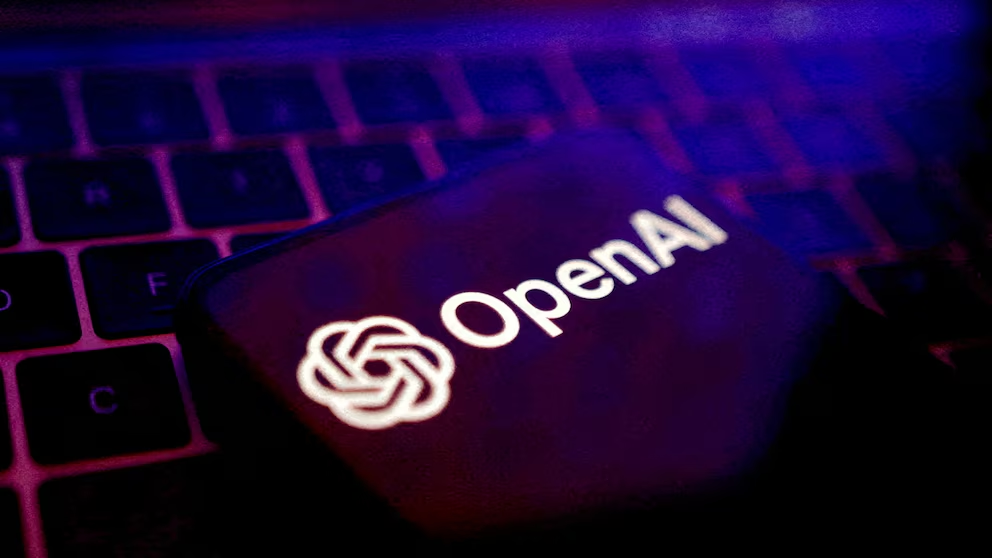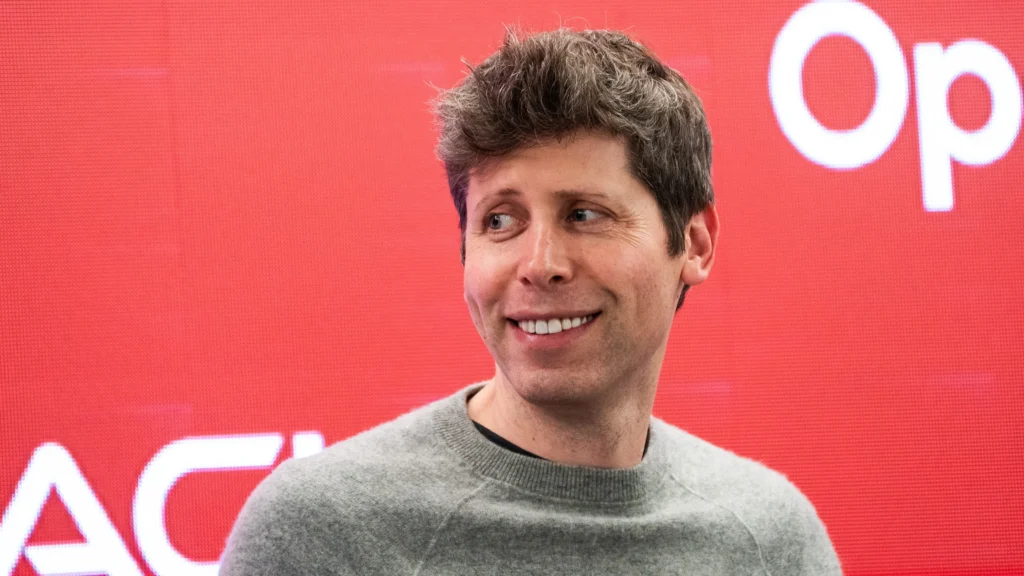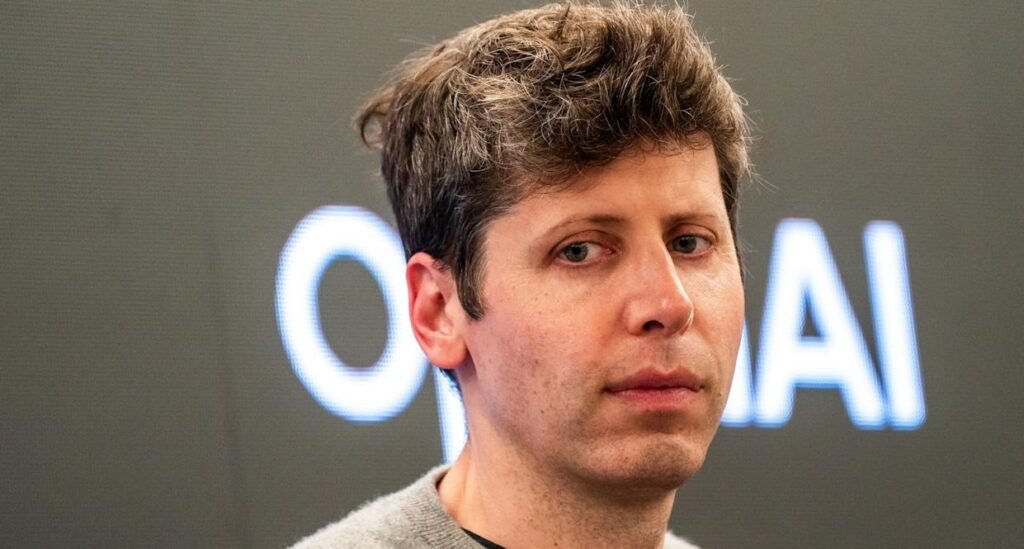Technology News
Play Solana to launch handheld PSG1 in October with crypto wallet inside fans say it could be the ‘Nintendo Switch of Web3’
The Solana
ecosystem expands into hardware once again, as Play Solana prepares to ship its first handheld gaming console with built-in fingerprint security and a crypto wallet.

The race to merge gaming and Web3 is heating up, and this time it’s not about mobile apps or desktop integrations. It’s about a handheld device that blends blockchain with everyday entertainment.
ALSO READ : Criminals are ‘vibe hacking’ with AI as Anthropic warns of $500,000 ransoms and fake North Korean tech workers
On October 6, Play Solana will begin shipping its first Web3 gaming console, the Play Solana Gen 1 (PSG1). The device, which runs on the Solana blockchain, is being hailed as one of the most ambitious attempts to make crypto gaming mainstream.
Specs tailored for gamers and Web3 users
The PSG1 isn’t just another portable console—it’s designed with the dual identity of a gaming device and a crypto tool. Packed with an octa-core ARM processor, 8 GB of RAM, Wi-Fi, Bluetooth, and a touch LCD display, it is equipped to handle modern gaming titles.
What sets it apart is its built-in hardware wallet and fingerprint authentication system, which allow players to store, secure, and even trade their crypto assets while gaming. This means users won’t need an additional device to manage digital currencies or NFTs.
Adding to the hype, Play Solana released a limited NFT collection of just 2,000 tokens. Holders of these NFTs enjoy early access to the console as well as exclusive perks within the Solana gaming ecosystem.
Solana doubles down on hardware
This isn’t Solana’s first foray into consumer hardware. Back in 2022, Solana Mobile, a subsidiary of Solana Labs, unveiled the Saga smartphone—an Android-based device designed for blockchain enthusiasts.
The Saga shipped with native Web3 tools like a Seed Vault, the Solana Mobile Stack, and a decentralized applications (DApp) store. Though initially met with skepticism, the phone eventually gained traction, thanks in part to a surprise BONK memecoin airdrop.
By 2023, the Saga was selling for as much as $5,000 on eBay, compared to its $599 launch price. Riding on that momentum, Solana Mobile launched a second-generation phone in 2024, followed by the Seeker phone in 2025, which reportedly reached 150,000 pre-orders and generated over $67.5 million in estimated revenue.
With the PSG1 console, Solana is signaling that it intends to remain at the forefront of Web3-integrated devices—not just in mobile but also in gaming.
Competition in the Web3 gaming space
Solana isn’t alone in betting on blockchain-ready handhelds. In 2024, Mysten Labs, the creator of the Sui blockchain, announced its own handheld console, the SuiPlay0X1, which is expected to hit the market in the first half of 2025.
Industry watchers are now comparing the Play Solana PSG1 with Sui’s upcoming device, wondering if this could spark a new “console war”—but in the Web3 era.
Why it matters
For years, blockchain adoption has been slowed by technical complexity and a lack of mainstream-friendly devices. With Solana’s PSG1, the vision is clear: a gaming console that feels as easy to use as a Nintendo Switch, but powerful enough to let players own and trade their in-game assets seamlessly.
If successful, it could mark a major turning point in how gaming and blockchain intersect—turning crypto from a niche hobby into something you can carry in your backpack.
Technology News
OpenAI reverses course after Hollywood backlash — Sam Altman promises “granular IP control” and potential revenue share for creators in Sora
Following criticism over the use of Hollywood characters and likenesses in its viral AI video app Sora, OpenAI CEO Sam Altman announced plans for stricter IP controls and a new revenue-sharing model for rightsholders.

The explosive rise of Sora — OpenAI’s text-to-video generation app — has captured global attention for its astonishing realism and creativity. But as users began flooding social media with AI-generated clips featuring familiar Hollywood characters, the app also ignited an intense backlash from studios, actors, and copyright holders concerned about the unauthorized use of their intellectual property.
ALSO READ : Dutch firm Amdax raises $23M to chase 1% of Bitcoin supply what it means for global markets
Now, Sam Altman, OpenAI’s CEO, is stepping in to address those concerns. In a late-night blog post on Friday, Altman announced that the company will introduce “more granular control” for rightsholders and is actively exploring a revenue-sharing program for creators whose IP appears in user-generated Sora videos.
“First, we will give rightsholders more granular control over generation of characters, similar to the opt-in model for likeness but with additional controls,” Altman wrote. “We are hearing from a lot of rightsholders who are very excited for this new kind of ‘interactive fan fiction,’ but they want the ability to specify how their characters can be used — including not at all.”
From “opt-out” to “opt-in” — a major policy shift
The move represents a notable reversal from OpenAI’s earlier “opt-out” policy, which allowed characters, brands, and other copyrighted material to appear in user-generated videos unless the owners explicitly requested removal. Under the new rules, OpenAI will adopt a “stricter opt-in model”, meaning that creators and companies must grant permission before their IP can be generated within Sora.

This shift mirrors OpenAI’s existing system for individuals, which allows users to control whether their likeness or voice can be used in generative AI content. However, the company is extending these protections to fictional characters, trademarks, and franchise IP, in response to growing pressure from entertainment giants like Disney, Warner Bros. Discovery, and Sony Pictures.
Altman’s statement also suggests that while Sora’s output policies are changing, the system may still be trained on media containing known characters or copyrighted visuals — a gray area that is likely to fuel further debate about AI training data and copyright law.
Hollywood’s reaction and the IP dilemma
The announcement comes amid rising tensions between Silicon Valley and Hollywood, as generative AI technology increasingly intersects with the entertainment industry.
Major studios and guilds — including the Screen Actors Guild-American Federation of Television and Radio Artists (SAG-AFTRA) and the Writers Guild of America (WGA) — have voiced concerns that AI tools like Sora could be used to replicate actors, writers, and creative works without consent or compensation.
Altman’s statement appears to be a direct response to those concerns. By offering an opt-in framework and potential profit-sharing system, OpenAI aims to appease rightsholders while keeping creators engaged.
“People are generating much more than we expected per user, and a lot of videos are being generated for very small audiences,” Altman wrote. “We are going to try sharing some of this revenue with rightsholders who want their characters generated by users.”
He added that the revenue model is still in development and will likely undergo “trial and error” before it becomes standardized.

A new frontier: “interactive fan fiction”
Despite the controversy, Altman’s tone suggested cautious optimism about what Sora represents for storytelling and fandom. He described a growing community of creators using AI to remix familiar universes — not for exploitation, but for creative expression.
“We’re hearing from rightsholders who see this as a new kind of interactive fan fiction,” Altman said. “They believe this kind of engagement will accrue a lot of value — if it’s done ethically.”
That perspective aligns with a larger cultural shift in online creativity. Sora’s users have produced everything from reimagined Marvel storylines to Star Wars fan films, blurring the boundary between fan art and studio IP.
But the same tools that empower fans also threaten established creative industries, raising urgent questions about ownership, consent, and monetization in the AI era.
The road ahead for OpenAI and Sora
Sora remains in its early-access phase, with select creators and developers experimenting under limited release. Still, the platform has already demonstrated how generative AI could revolutionize filmmaking — and, in the process, disrupt traditional media production models.
OpenAI’s promise of more transparent IP governance and potential revenue sharing could set a precedent for how tech companies collaborate with — rather than compete against — creative industries.
Analysts believe the company’s next major challenge will be ensuring copyright compliance across billions of generated videos while maintaining creative freedom for users.
As the entertainment industry grapples with the implications of AI, one thing is certain: tools like Sora are redefining what it means to create, share, and profit from visual storytelling.
“This is new territory for everyone,” Altman concluded. “We want to build a system that rewards creativity — both human and artificial — without crossing ethical or legal lines.”
Technology News
OpenAI launches Sora app with shocking TikTok twist as Sora 2 model brings “physics to AI videos”
From basketball rebounds to personal cameos, OpenAI’s new Sora app is changing how we see AI-generated video and social media.

OpenAI is taking a bold step beyond chatbots and text models with the launch of its brand-new Sora app, a short-form video platform positioned as a direct rival to TikTok and Instagram Reels. The release came alongside Sora 2, the next generation of OpenAI’s video and audio generator, which promises to make AI-generated clips look far more realistic than before.
ALSO READ : BNB Chain’s official X account hacked CZ warns followers “Do NOT connect your wallet”
The announcement, made on Tuesday, has already generated waves across the tech and creator communities. In an official blog post, OpenAI claimed that Sora 2 fixes one of the biggest problems of earlier models — their inability to follow the laws of physics.
“Prior video models are overoptimistic — they will morph objects and deform reality to successfully execute upon a text prompt,” OpenAI explained. “For example, if a basketball player misses a shot, the ball may spontaneously teleport to the hoop. In Sora 2, if a basketball player misses a shot, it will rebound off the backboard.”
The public demonstrations from OpenAI featured highly realistic scenes — from beach volleyball matches to skateboard tricks, gymnastics routines, and even dramatic cannonball dives into swimming pools.
The “cameos” feature: Upload yourself into AI videos
Perhaps the most surprising part of the launch is the Sora app’s “cameos” feature, which allows users to literally drop themselves into AI-generated clips. By uploading a one-time video and audio file to verify their likeness, people can generate videos where they — or their friends — appear in AI-crafted scenarios.
Even more striking, users can share their “cameos” with friends, granting them permission to include their likeness in generated videos. That means multiple people can appear together in a surreal AI-crafted scene.

OpenAI described the idea simply: “We think a social app built around this ‘cameos’ feature is the best way to experience the magic of Sora 2.”
Sora app vs TikTok and Meta
The new Sora app functions like a hybrid between TikTok and Meta’s Instagram Reels. Videos appear on an algorithmic feed that learns from user activity, location, and even past ChatGPT conversations — though the latter can be switched off.
This launch comes just days after Meta revealed its own video feed called Vibes inside the Meta AI app, signaling that the short-form video battle is entering a new chapter where AI-generated content takes center stage.
Safety, parental controls, and ethical concerns
While the technology is impressive, it brings serious safety concerns. Non-consensual use of likenesses has already been a persistent issue with AI video tools, and OpenAI’s new app could make such misuse easier.
To counter this, the company has introduced parental controls integrated with ChatGPT, allowing guardians to restrict infinite scroll, disable algorithmic personalization, or block direct messages for children. Users can also revoke access to their likeness at any time. Still, experts warn that misuse remains a real risk, since trusted friends could still generate deceptive or harmful videos.
Free at launch, monetization later
For now, the Sora iOS app is free to download in the U.S. and Canada, with plans to expand internationally. OpenAI has clarified that monetization will initially be limited to charging users for generating extra videos during periods of high demand.
Interestingly, ChatGPT Pro subscribers will gain access to the Sora 2 Pro model, even without an invite to the app itself. This move could give OpenAI’s premium users a powerful edge in experimenting with advanced video generation.
What it means for the future of social media
The Sora launch isn’t just another app drop — it signals a broader shift in how AI will integrate with entertainment and communication. By blending personal identity, AI creativity, and social sharing, OpenAI is positioning itself at the very heart of the short-form video revolution.
But whether the platform can compete with giants like TikTok and Meta will depend not just on its technology, but on how it handles trust, safety, and community culture.
For now, Sora is invite-only, but the buzz surrounding it suggests that when the doors open wider, millions of users will be eager to test just how magical — or dangerous — AI-powered social video can be.
Technology News
Bitchat downloads skyrocket in Madagascar as protests erupt over water and power cuts… Jack Dorsey’s app becomes a lifeline
Bitchat downloads skyrocket in Madagascar as protests erupt over water and power cuts… Jack Dorsey’s app becomes a lifeline

Amid mounting protests over water and power shortages, a surprising digital trend has emerged: Bitchat, the decentralized peer-to-peer messaging service created by Jack Dorsey, is experiencing a surge in downloads and online searches across the island nation.
Protests began last Thursday in the capital city Antananarivo, where frustrated residents clashed with police over ongoing blackouts and dry taps. Demonstrations quickly spread nationwide, leading to reports of looting and prompting the government to sack its energy minister. To curb unrest, authorities imposed a dusk-to-dawn curfew—but that hasn’t stopped citizens from finding new ways to communicate.
ALSO READ : Dutch firm Amdax raises $23M to chase 1% of Bitcoin supply what it means for global markets
Bitchat surges in popularity
According to callebtc, a Bitcoin open-source developer working on the project, downloads of Bitchat spiked sharply in Madagascar over the weekend. Screenshots of protests circulating online coincided with Google Trends data showing the term “Bitchat” soaring from zero to 100 in search popularity on Friday—a level categorized as “peak popularity.”
Related searches like “Bitchat download” and “how to use Bitchat” ranked among the top five breakout topics in the country.
Meanwhile, Chrome-Stats recorded more than 21,000 downloads in the last 24 hours, pushing Bitchat’s total installs past 365,000 since launch. While exact regional breakdowns aren’t available, analysts say Madagascar’s protests were a major driver of the surge.
A tool for protest movements
This is not the first time Bitchat has gained traction during political unrest. Earlier in September, downloads spiked in Nepal during corruption-related protests that briefly triggered a social media ban. A similar uptick followed demonstrations in Indonesia, where protesters turned to decentralized apps after authorities restricted traditional platforms.

What makes Bitchat unique is its Bluetooth mesh network technology, allowing encrypted communication without internet connectivity. Users don’t need phone numbers, email addresses, or central servers to sign up, making the platform resilient against government shutdowns.
Dorsey, who also co-founded Block Inc. and Twitter (now X), launched Bitchat’s beta in July. His vision is for censorship-resistant communication tools that protect user privacy even under state pressure.
Internet access still limited
Yet despite the surge, Bitchat’s reach in Madagascar remains constrained. Out of a population of nearly 32 million, only about 6.6 million people had internet access at the start of 2025, according to DataReportal. While there are more than 18 million mobile connections, many are limited to calls and SMS, excluding internet-based services.
For those connected, however, Bitchat has become a vital channel for organizing, sharing updates, and bypassing government restrictions.
Global pressure on encrypted platforms
The rise of decentralized apps like Bitchat comes as governments in Europe push for tighter surveillance. The controversial EU “Chat Control” law aims to force platforms such as Telegram, WhatsApp, and Signal to allow authorities to scan messages before they are encrypted.

So far, 15 EU countries back the proposal, but it still falls short of the required 65% population threshold. Germany, which holds a pivotal vote, has yet to take a final stance.
Critics, including Diode CEO Hans Rempel and Brickken’s Elisenda Fabrega, warn the law could have unintended consequences by driving users toward censorship-resistant Web3 platforms like Bitchat.
The bigger picture
For Madagascar, Bitchat’s spike highlights how technology is increasingly intertwined with political unrest. From Kathmandu to Antananarivo, decentralized tools are becoming the go-to choice for citizens when traditional communication channels are compromised.
And for Dorsey, every surge in downloads during unrest only reinforces his central argument: that true democracy cannot exist without privacy and secure communication.
-

 Entertainment1 week ago
Entertainment1 week agoAlyssa Milano removes breast implants says she finally feels free and authentic
-

 Sports1 week ago
Sports1 week agoSeattle Mariners end 24 year drought as Cal Raleigh belts No 60 to clinch AL West crown
-

 Technology News1 week ago
Technology News1 week agoChina opens Shanghai digital yuan hub to rival US dollar but here’s the bigger plan
-

 Sports1 week ago
Sports1 week agoLionel Messi scores twice with assist as Inter Miami crushes New York City FC fans stunned by his masterclass
-

 Entertainment6 days ago
Entertainment6 days agoDolly Parton delays Las Vegas concerts by nine months citing health challenges but promises unforgettable return
-

 Politics1 week ago
Politics1 week agoUS Senate to grill Coinbase executive as crypto tax fight heats up next week
-

 Entertainment1 week ago
Entertainment1 week agoScarlett Johansson breaks silence on Colin Jost’s SNL future fans surprised by her answer
-

 Entertainment6 days ago
Entertainment6 days agoZoey Deutch engaged to comedian Jimmy Tatro after 4 years of dating with romantic beach proposal




























